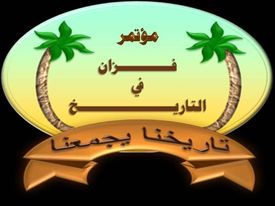Description of Fezzan through the books of Muslim travelers and geographers (From the third century AH to the seventh century AH)
DOI:
https://doi.org/10.51984/johs.v20i3.1503Keywords:
description of Fezzan, travelers, geographersAbstract
The One of the most important difficulties that a researcher faces in studying the history of Fezzan is the lack of resources and material that help him to move forward in his research, as undoubtedly the researcher driving by the material that he has to carry out his job. Perhaps the most prominent thing that we notice when researching the history of the medieval Fezzan and its scarcity is the lack of information compared to other regions and neighboring in Egypt and the Islamic Maghreb, which have had many books that trace their history. On the other hand, Fezzan was mentioned and described in the books of Muslim travelers and geographers, and their writings. This represented a source of geographical and historical information through their transmission of their own observations or through their transmission from others who mentioned Fezzan before them. In fact most of these writings are much later than the stages that the region went through, such as the Arab conquest. The details of travelers and geographers wrote about Fezzan was written in late historical eras and conveyed to us sporadic, fluctuating and repeated sometimes. These information about Fezzan in particular and Libya in general, might not enough to write a solid study about Fezzan in the Islamic era. Perhaps the absence of independent states in the Fezzan region in particular and in Libya in general, similar to what happened in the rest of the Islamic Maghreb countries, is a reason for the reluctance of historians to write about Fezzan. Moreover, the location of Fezzan in the middle of desert with a small population may make a great influence on its history, even though Fezzan has played for many centuries as a linkage between North and South. The history of Fezzan is scattered in the folds of books, the collection and coordinate the history of Fezzan from these resources become very important it matter to fill this gap in Fezzan and Libya history.
Downloads
Downloads
Published
Issue
Section
License
Journal of Humanities Policy on Intellectual Property and Plagiarism
1. Commitment to Intellectual Property and Ethics
The Journal of Humanities (JOHS) is fully committed to respecting intellectual property rights and aims to protect the originality and authentic work of authors who submit their manuscripts for publication. The journal takes a firm stand against articles that contain any form of plagiarism and emphasizes the need for all researchers to adhere to the highest ethical standards in scientific research.
2. Anti-Plagiarism Policy
The journal considers plagiarism a serious violation of academic ethics. Therefore, authors must ensure that their work is original and not plagiarized, and that any use of external sources is properly cited and documented according to correct academic standards.
-
Actions Taken: In the event that any plagiarism or academic theft is discovered in a submitted article, the editorial board will contact the author to request a formal explanation within a maximum period of two weeks from the date of notification.
-
Investigation and Decision: After receiving the explanation, the article will be referred to the journal's specialized committees, which will investigate the matter and take the necessary measures, which may include the permanent rejection of the article and the imposition of disciplinary actions.
3. Publication License and Author Rights
The journal adopts the Creative Commons license type Attribution-NonCommercial-NoDerivs 4.0 International (CC BY-NC-ND 4.0), which allows for the following:
-
Attribution: Users are entitled to cite the content published in the journal and use it in their work, provided that the original source and author are clearly credited.
-
Non-Commercial: The published content may not be used for any commercial purpose.
-
NoDerivs: It is not permitted to make any modifications, distortions, or to build derivative works from the published content.
Under this license, authors are required to complete an exclusive license agreement for the journal. Authors retain the rights to their research data and may reuse and share their work for scientific purposes with proper citation.







